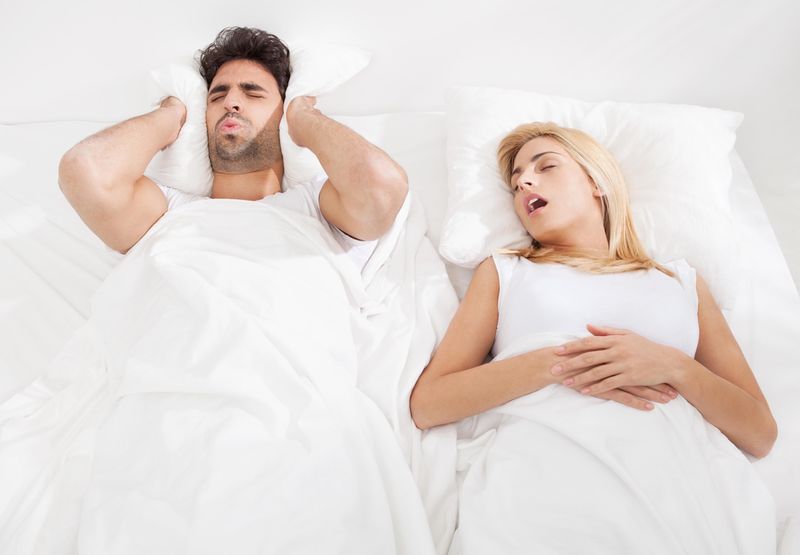Do You Have Sleep Apnoea?Snoring and sleep apnoea are two conditions that are often confused. While sleep apnoea will almost always lead to loud and frequent snoring, snoring does not always indicate sleep apnoea. Knowing the difference between these two conditions is key in determining the proper treatment for your symptoms and helping you get a better night’s sleep. So what is sleep apnoea and what can you do to treat it?
What Is Sleep Apnoea?Sleep apnoea occurs when the walls of the throat come together during sleep and block off the upper airway. Breathing then stops for a period of time (generally between a few seconds and one minute) until the brain registers the lack of breathing or a drop in oxygen levels. The sleeper then rouses slightly, opens the upper airway, typically snorts and gasps, then drifts back to sleep almost immediately. Commonly, the person suffering from sleep apnoea doesn’t even realise they are waking up, but will wake feeling unrefreshed in the morning, with excessive daytime fatigue. It can be caused or worsened by obesity, a large tongue and tonsils, ageing and head and neck shape.
Types of sleep apnoea
How Does It Differ From Snoring?Snoring is the result of tissues in the throat relaxing enough that they partially block the airway and vibrate, creating a sound. The biggest telltale sign in determining whether you snore of suffer from sleep apnoea is how you feel during the day. Normal snoring doesn’t interfere with the quality of your sleep as much as sleep apnoea does, so you’re less likely to suffer from extreme fatigue and sleepiness during the day.
Sleep Apnoea TreatmentsWhile there is no effective drug for treating sleep apnoea, a popular remedy is the use of a custom dental device. These hold the jaw forward during sleep and when properly made, can be effective for mild to moderate sleep apnoea. Most dental devices are acrylic and fit inside your mouth like a mouthguard, which open your airway during sleep. It is very important to get these devices fitted by a dentist specialising in sleep apnoea, such as Dundas Dental, and to see the dentist on a regular basis for any dental problems that may occur.
Talk To Your Doctor and DentistIf you or your partner is a frequent loud snorer, stops breathing, gasps or chokes during sleep, experiences excessive restlessness at night or feels sleepy during the day, you may want to speak to your doctor or dentist about the possibility of sleep apnoea. |
